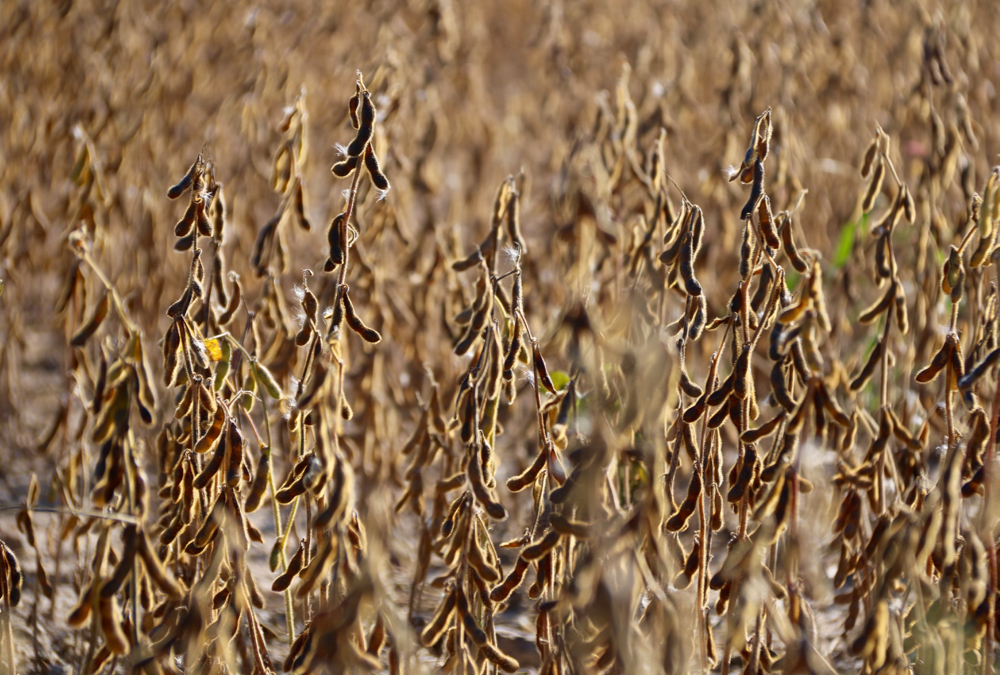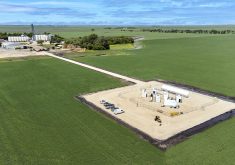Glacier FarmMedia – What does it take to produce a bushel of grain?
How much fertilizer, fuel, chemical and carbon?
These are questions a new company — Gro Network — hopes to answer.
If things go as planned, farmers who participate in Gro Network’s low-carbon grain scoring program will receive premium pricing for every bushel of grain that’s produced using environmentally sustainable or regenerative farming practices.
Why it matters: If programs like this are successful, farmers may be able to garner more premiums for environmentally friendly practices.
Read Also

Ontario’s agri-food sector sets sights on future with Agri-Food 2050 initiative
The first-ever Agri Food 2050, a one-day industry event dedicated to envisioning the future of food and farming in Ontario,…
The Gro Network concept was unveiled recently by Farmers’ Business Network.
FBN plans to gather data on production practices, such as nitrogen use and tillage practices, and use the data to support a system that assigns an environmental score to each crop.
Crops that are assigned a higher sustainability score will, in theory, fetch a higher market price among environmentally conscious end-users, including companies that hope to market their products as eco-friendly options.
Gro Network has agreements with a number of high-profile companies that want to source so-called low carbon or eco-friendly grain.
Multinational food processor and consumer products manufacturer Unilever was among the companies that participated in a Gro Network pilot project that field-tested the low-carbon grain-scoring concept in the United States.
Poet, a U.S.-based ethanol producer and the world’s biggest manufacturer of grain-based biofuels, has also signed on to the Gro Network platform as a key customer in the emerging market for verifiable “low-carbon” grain.
“At Poet, we know that agriculture is the key to combating climate change, and we want to support farmers who share our mission to be good stewards of the earth by using environmentally friendly practices,” said Poet founder and chief executive officer Jeff Broin.
Broin said Poet intends to source low carbon corn to produce greener bioethanol and bioproducts.
FBN is already established in the United States and Canada as a membership-based farm input supplier.
Its members include more than 14,000 growers who collectively manage an estimated 40 million acres of farmland across North America.
FBN’s involvement in the Gro Network initiative includes the collection of farm-based, machine-generated data and the development of a platform that scores grain on a sustainability scale.
In addition to collecting data and developing a platform, the Gro Network also provides market intelligence software that connects farmers with companies — including food manufacturers, animal feed makers and biofuel producers — that are seeking grain with specific production attributes.
“All of our programs to date have been well over-subscribed from the farmer side,” said Gro Network executive Devin Lammers.
“There seems to be no lack of interest from farmers who are already invested in these (environmentally sustainable) practices.”
“Really what needs to develop from the market standpoint is the buy (side),” he added.
“We need more folks like Unilever and Poet and others to come forward and make the investment and say, ‘we care about these attributes. We’re willing to pay for them and we’re going to embed them in our supply chain.’ ”
Sustainability scores that are assigned to a crop can be customized to meet a specific buyer’s criteria. Nitrogen use efficiency is one attribute that interests end users.
The collection and monetization of machine-generated production data is relatively new but it’s gaining acceptance among North American growers.
Chad Rubbelke, a farmer from Minot, North Dakota, who took part in a Gro Network pilot project, said the sustainability practices that he employed generated premiums on hard wheat and durum in U.S. funds ranging from 10 cents up to $1 per bushel.
“When FBN came to me and asked me if I’d participate in this, I was a little bit hesitant at first because I wasn’t sure what avenue they were looking to go down, but I was able to get into it through a mill that we were already dealing with quite heavily with our wheat and durum production,” Rubbelke said.
“I’ve got to say that they really impressed me… The sustainability projects I’ve been involved in before have all been kind of a one-sided deal. You give information but you don’t really receive much of anything on the other end.
“But in the FBN deal, we’re finally starting to see that the products we’re selling are value-added because of our on-farm sustainability practices.”
In addition to receiving premium pricing, participation in the program allowed Rubbelke to sell his wheat directly to Unilever, providing a guaranteed market and eliminating elevator companies or grain buyers that act as intermediaries.
Rubbelke conceded that the notion of sharing machine-generated data with others in the grain supply chain is a concept that doesn’t sit well with a lot of farmers.
But he sees data as another commodity that’s produced on the farm and can be used to boost farm productivity.
“Most of the farmers that I deal with that have an apprehension about sharing data aren’t utilizing their data anyway,” he said.
“Farmers have to understand that their data is valuable and it is worth money but you have to utilize it and you have to get something out of it for it to be of any value to your farm.”
This article was originally published at The Western Producer.














